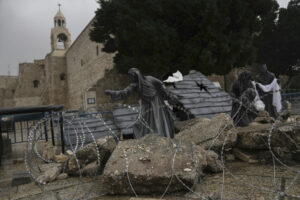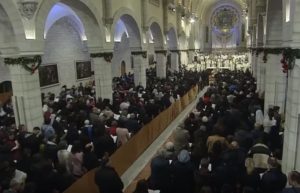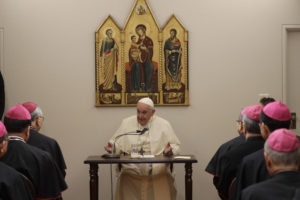Easter: The Resurrection (with Questions)
Hallelujah! Easter is almost here. Aren't you glad? What's that low sigh I hear? Ohhhhh that's right, you're one of those progressive Christians. Easter is probably the most conflicted time of the year among progressive churches, even more so than Christmas. Even a progressive Christian can reasonably assert that Jesus was really born, even as the debate goes on among others about how he was born. But this is not so with Easter. Either he was resurrected or he was not. And when we say he was not, then someone somewhere will quote I Corinthians 15:12 to us, "Now if Christ is proclaimed as raised from the dead, how can some of you say there is no resurrection of the dead?" This is Part of the "The Truth About Jesus" Dig seriesHallelujah! Easter is almost here. Aren’t you glad? What’s that low sigh I hear? Ohhhhh that’s right, you’re one of those progressive Christians. Easter is probably the most conflicted time of the year among progressive churches, even more so than Christmas. Even a progressive Christian can reasonably assert that Jesus was really born, even as the debate goes on among others about how he was born. But this is not so with Easter. Either he was resurrected or he was not. And when we say he was not, then someone somewhere will quote I Corinthians 15:12 to us, “Now if Christ is proclaimed as raised from the dead, how can some of you say there is no resurrection of the dead?”
Rather than reading this and thinking, “Oh my, how can we even speak about whether the Resurrection is real or not?” I find this passage liberating. For when we understand the full context of this passage, we realize that inherent in Paul’s question is the fact that a significant number (significant enough for him to address it) of Corinthian Christians did, in fact, say that there was no resurrection of the dead. It is important that we realize that resurrection was an intense debate in the Corinthian congregation. Interestingly, Paul first falls back on the “received” teaching that he had passed on to them. Then he begins his own theologizing about resurrection and by the time he is through the resurrection of the ‘body’ has been totally spiritualized.
According to Burton Mack, this spiritualization of the Resurrection was in keeping with the Greek sensibilities of the Gentile Congregations of [the] Christ that were springing up in the eastern Mediterranean regions of the Roman Empire. Greek notions of immortality did not include the body. Immortality was more a matter of the mind or spirit leaving the body to experience eternal existence.
Paul anticipates the objections in his argument. Verse 35 says, “But someone will ask, ‘How are the dead raised? With what kind of body do they come?'” You bet we want to know that! His answer to this question would be considered heresy today by fundamentalists and many conservative-traditional theologians. “It is sown a physical body, it is raised a spiritual body.” Did I read that right? Paul just said there is no resurrection of the “physical body”! In spite of his opening homage to the received “gospel” his own theology essentially undoes any literal interpretation of the resurrection of the body.
So all you progressive Christians rest assured as we celebrate Easter, we are in good (if unexpected) company as we continue to ask questions, challenge dogma and seek to understand God not through blind obedience to tradition but with our eyes and mind wide open.
Your support matters…Independent journalism is under threat and overshadowed by heavily funded mainstream media.
You can help level the playing field. Become a member.
Your tax-deductible contribution keeps us digging beneath the headlines to give you thought-provoking, investigative reporting and analysis that unearths what's really happening- without compromise.
Give today to support our courageous, independent journalists.






You need to be a supporter to comment.
There are currently no responses to this article.
Be the first to respond.